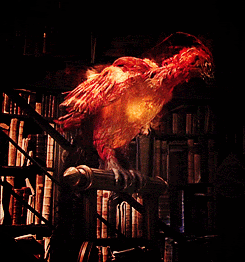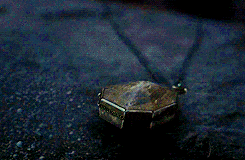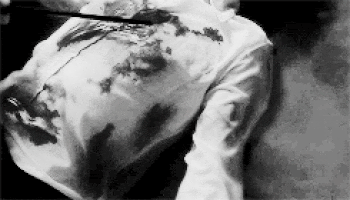From Accio (Latin, to summon) to Wingardium Leviosa (Latin, to lift or raise), and Albus (Latin, white) to Voldemort (French, ‘flight from death’), there are hundreds of creative origins behind the names, spells, potions and locations in J.K. Rowling’s expansive Wizarding World.
A
Abraxan: Greek mythology, Abraxus was the horse that pulled Helios’ chariot.
Accio: Latin, to call or summon.
Aguamenti: Latin, ‘aqua’ (water) and ‘mentis’ (mind).
Alastor: Greek, God of revenge.
Albus: Latin, ‘white’.
Alohomora: from the Hawaiian ‘aloha’ (a greeting) and the Latin ‘mora’ (obstacle).
Anapneo: Greek, to breathe.
Apparate: from the Latin ‘appareo’ (to become visible).
Arabella: from the Latin ‘ara’ (to alter) and ‘bella’ (Italian, war).
Aragog: portmanteau, ‘arachnid’ (spider) and ‘gog’ (giant).
Argus: Greek, monster with one hundred eyes.
Arthur: of English origin, ‘rock’.
Augurey: from ‘augury’, ancient practice of divination by interpreting the flight of birds.
Avada Kedavra: from the Arabic ‘abra kadabra’, to be destroyed.
Avis: Latin, ‘bird’.
B
Bagman: a person who ‘bags money’.
Basilisk: from the Greek ‘basiliskos’, ‘little king’ or ‘petty tyrant’.
Beauxbatons: French, ‘beautiful wands’.
Bellatrix: female warrior, a star in the constellation Orion.
Boggart: from the Irish ‘baggart’ (threat).
C
Caput Draconis: Latin, ‘Dragon Head’.
Cedric: English, ‘war leader’.
Charlie: German, ‘manly and strong’.
Cho Chang: from the Japanese ‘cho’ (butterfly) and the Chinese ‘chang’ (free).
Colin: Old French short form of ‘Nicolas’. In Greek, ‘youth’.
Colloportus: Latin, portmanteau of ‘colligere’ (bind together) and port (door).
Confundus: from the Latin ‘confundo’ (to confuse).
Conjunctivitis: an inflammation of the mucous membrane that surrounds the surface of the eyeball (the ‘conjunctiva’).
Cornelius: Latin, ‘horn-coloured’.
Crucio: Latin, to torture.
D
Deletrius: from the word ‘delete’, to erase or remove.
Dementor: from the English ‘demented’ (tortured) and the Latin ‘dementio’ (to go mad).
Densaugeo: from the Latin ‘den’ (teeth) and ‘augeo’ (to thicken).
Demiguise: From the Latin ‘demi’ (half) and ‘guise’ (to conceal).
Diagon Alley: literally ‘diagonally’ (crooked, at an angle, oblique).
Diffindo: Latin, to split.
Disapparate: Latin, ‘dispareo’ (to disappear).
Dobby: derivation or shortform of Robert, a fool or childish old man.
Dolores: Spanish, sorrow.
Draco: Latin, ‘dragon’.
Draco Dormiens Nunquam Titillandus: Latin, ‘never tickle a sleeping dragon’.
Dumbledore: Old English, ‘bumblebee’.
Durmstrang: German, portmanteau of ‘sturm und drang’ (storm and stress).
Dudley: Old English, ‘a people’s field’.
Dursley: town in southern Gloucestershire close to where author J.K. Rowling was born.
E
Engorgio: from the word ‘engorge’ (to fill to excess).
Ennervate: to drain of energy.
Erised: the word ‘desire’ spelled backwards.
Evanesco: Latin, to vanish or disappear.
Expecto Patronum: Latin, ‘expecto’ (to await) and ‘patronum’ (protection).
Expelliarmus: Latin, to expel a weapon.
F
Fawkes: nod to Guy Fawkes, a conspirator in the Gunpowder Plot of 5 November 1605; his anniversary is celebrated by burning an effigy of Fawkes and with fireworks.
Felix Felicis: Latin, ‘lucky’.
Fenrir: Norse mythology, Fenris was a giant wolf monster.
Fidelius: Latin, ‘faithful’.
Filch: to steal.
Finite Incantatem: Latin, literally ‘end of spell’.
Firenze: Italian, the city of Florence.
Flitwick: town in Bedfordshire, fifty miles north of London.
Fleur Delacour: French, ‘fleur’ (flower) and ‘delacour’ (of the court).
Fluffy: a pet name for a dog and potentially inspired by Cerberus, a three-headed monster in Greek mythology.
Fudge: to falsify or make up, also a sugary treat.
G
Gilderoy: Irish, ‘devoted to the king’.
Ginny: Italian (short for Ginerva), woman of the people.
Grindelwald: Village in Switzerland.
Grimmauld Place: literally, ‘grim old place’.
H
Harry: English, ‘army ruler’.
Hagrid: ‘hag-ridden’, burdened by nightmares or anxiety.
Hedwig: inspired by the name of two Medieval saints and, Scandinavian, ‘female warrior or battle’.
Hermione: Greek, ‘well born’.
Homorphus: Latin, portmanteau of ‘homo’ (man) and ‘morphus’ (transform).
Horcrux: French, ‘dehors’ (outside) and ‘crux’ (soul).
I
Immobulus: from the word ‘immobilise’ (to prevent motion).
Impedimenta: Latin, ‘impedimentum’ (a hindrance).
Imperio: Latin, ‘to command or rule’.
Impervius: from the word ‘impervious’ (incapable of being affected).
Incarcerous: from the word ‘incarcerate’ (to lock in).
Incendio: Latin, ‘incendo’ (to set alight).
K
Knocturn Alley: literally, ‘nocturnally’ (at night).
Krum: German, ‘crooked or deformed’.
L
Levicorpus: Latin, portmanteau of ‘levo’ (to raise) and ‘corpus’ (body).
Liberacorpus: Latin, ‘libera’ (to release or set free) and ‘corpus’ (body).
Lily: Latin, a flower representing peace and purity.
Lockhart: town in Australia near Wagga Wagga; Lockhart purportedly defeated the Wagga Wagga Werewolf.
Lucius: Latin, ‘bringer of the light’.
Ludo: Latin, to play.
Lumos: Latin, ‘lumen’ (light).
Luna: Latin, ‘moon’.
Lupin: Canis Lupus, scientific name for ‘wolf’.
M
Malfoy: French, ‘mal foi’ (‘bad faith’).
Maxime: French, ‘large’.
Minerva: Roman Goddess of wisdom.
Mobilicorpus: Latin, ‘mobilis’ (moveable) and ‘corpus’ (body).
Moody: in an unpleasant mood.
Morsmordre: Latin, ‘mors’ (death) and French, ‘mordre’ (to bite).
Muffliato: from the word ‘muffle’ (to dull sound).
Mundungus: a stinking tobacco.
N
Nagini: Sanskrit, ‘snake’.
Narcissa: Greek mythology, Narcissus fell in love with his reflection.
Neville: French, ‘new town’.
Nicholas Flamel: a historical alchemist who purportedly discovered the philosopher’s stone.
Nimbus: Latin, ‘rain’.
Norris: named after a character in Jane Austen’s Mansfield Park.
Nox: Latin, ‘darkness’.
O
Obliviate: Latin, ‘oblivio’ (forgetfulness).
Orchideous: from ‘orchid’, a colourful and fragrant flower.
Oppungo: Latin, to attack.
P
Padma: Sanskrit, ‘lotus’.
Parvati: a Hindu Goddess.
Patronus: Latin, ‘protector’.
Peeves: from the word ‘peeve’, to bug or annoy.
Pensieve: French, portmanteau of ‘pen’ (thought) and ‘sieve’ (a tool to strain or filter).
Petrificus Totalus: Latin, ‘to totally petrify’.
Polyjuice: Greek, ‘poly’ (many).
Portus: Latin, ‘porta’ (gate).
Prior Incantato: Latin, ‘priori’ (former) and ‘incantation’ (chant or spell).
Protego: Latin, ‘protect’.
Q
Quibbler: from the word ‘quibble’, to fib.
Quietus: from the word ‘quiet’.
Quidditch: Fictional invention by J.K. Rowling. Derived from ‘Queerditch Marsh’, the town the sport was first played.
R
Reducio: Latin, ‘reduco’ (to reduce).
Regulus: a star in the Leo constellation.
Remus: Roman mythology, Remus and brother Romulus were raised by female wolves.
Reparo: Latin, to restore.
Rictumsempra: Latin, ‘rictum’ (laughter) and ‘semper’ (always).
Riddikulus: From the word ‘ridiculous’ (silly or nonsensical).
Ronald: Hebrew, the King’s advisor.
Rosmerta: Celtic mythology, Goddess of fire.
Rubeus: Latin, ‘ruber’ (red).
S
Salazar: a fascist Portuguese dictator.
Sectumsempra: Latin, ‘sectio’ (to cut) and ‘semper’ (always).
Severus: Latin, ‘mean and strict’.
Sybill: Latin, ‘Sibylla’ (fortune teller or prophetess).
Silencio: from the word ‘silent’.
Sirius: brightest star (Alpha Canis Majoris or ‘Dog Star’) in the night sky.
Skeeter: colloquial word for mosquito, an irritating buzzing insect.
Sonorous: Latin, ‘loud’.
Sprout: to grow up from a seed in the ground.
Snape: A small village in Suffolk.
Stupefy: Latin, ‘stupefacere’ (make stupid or senseless).
T
Tarantallegra: portmanteau of ‘tarantella’ (a fast Italian dance) and ‘allegro’ (a fast and lively tempo).
Tergeo: Latin, to scrub or clean.
Toujours Pur: French, ‘always pure’.
U
Umbridge: from the word ‘umbrage’ (to take offence).
V
Veritaserum: Latin, ‘veritas’ (truth) and ‘serum’ (potion).
Voldemort: French, ‘flight from death’.
W
Wingardium Leviosa: Latin, ‘levo’ (to lift or raise).











